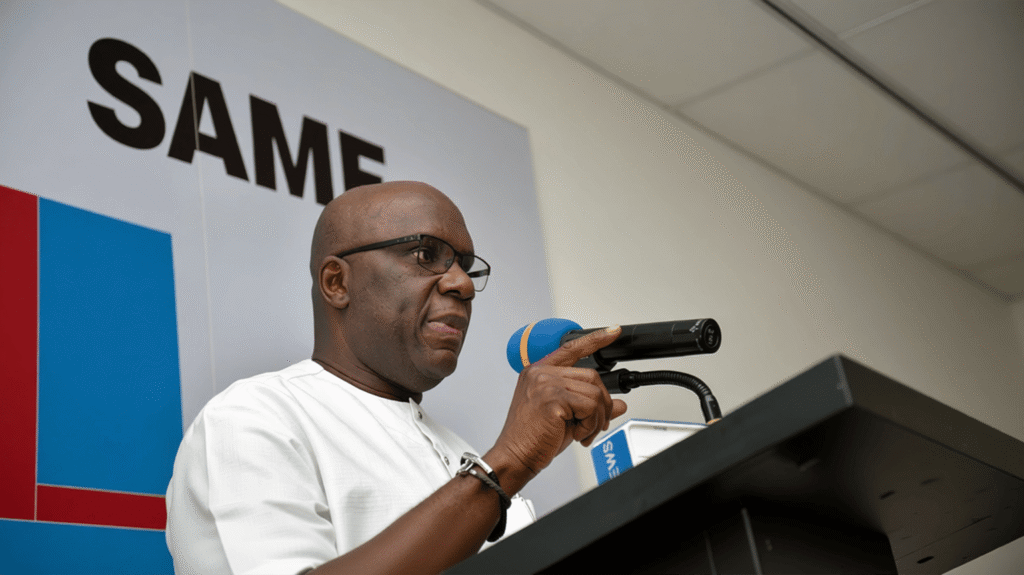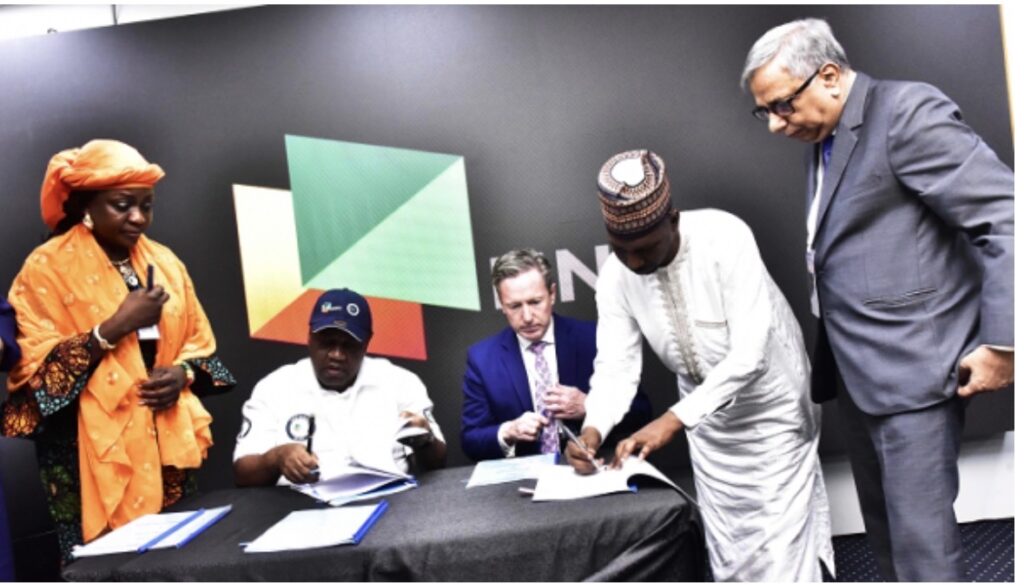Rhodes-Vivour Dumps Labour Party for ADC

The 2023 Lagos State governorship candidate of the Labour Party, Gbadebo Rhodes-Vivour, has formally dumped the Labour Party and joined the African Democratic Congress (ADC), marking a new turn in his political career and potentially reshaping opposition politics in Lagos ahead of the 2027 general elections.
The declaration took place on Saturday at an event in Alimosho, Lagos, where ADC leaders and supporters gathered to welcome him into the party. Rhodes-Vivour, who gained prominence during the last governorship election as a youthful and vocal challenger to the ruling All Progressives Congress (APC), said his defection was inspired by the need to align with a broader coalition of reform-minded Nigerians seeking genuine political change. Speaking during the event, Rhodes-Vivour said: “This is not about one man or one party. It is about building a movement strong enough to deliver real transformation to Lagos and Nigeria at large. The ADC offers a platform that represents inclusiveness, accountability, and people-driven leadership. Together, we will expand the frontiers of democracy and create a viable alternative for the people.” ADC officials described his entry into the party as historic and a boost to its strength in Lagos and across the country. The party’s Lagos chairman, George Ashiru, noted that Rhodes-Vivour symbolised the new wave of leadership that Nigerians, particularly the youth, were yearning for. “Today is not about affirming an individual but affirming a movement,” Ashiru declared, adding that the ADC was committed to building alliances capable of challenging entrenched political structures. The reception, however, was not without controversy. Organisers accused security operatives of attempting to obstruct the event after police sealed off Lion Field, Ipaja, the initially approved venue. Witnesses reported heavy deployment of officers, including an armoured personnel carrier, preventing supporters from accessing the premises. Rhodes-Vivour condemned the development, alleging that the police acted on “orders from above” to frustrate a lawful gathering. Despite the setback, the event went ahead at an alternative venue, where a large crowd of supporters joined party leaders in welcoming him. Political analysts say Rhodes-Vivour’s defection could have significant implications for both the Labour Party and the ADC. While the Labour Party is yet to issue an official statement on the matter, observers believe his exit may weaken its growing youth base in Lagos, where he had become the face of its political momentum. For the ADC, however, the move is seen as a major opportunity to expand its reach, attract undecided voters, and strengthen its position in ongoing talks about opposition realignment ahead of 2027. The development has also triggered mixed reactions among stakeholders. Supporters of the ADC celebrated his defection as a sign of growing unity among opposition forces, while critics described it as a gamble that could either consolidate or fragment the anti-APC vote in Lagos. Civil society groups have urged the police and political actors to respect democratic rights and ensure a peaceful political environment as the state heads toward another critical election cycle. Rhodes-Vivour’s move highlights the increasing trend of political repositioning across Nigeria, as politicians and parties seek stronger platforms in anticipation of the 2027 general elections. With Lagos remaining one of the most strategic battlegrounds in national politics, his defection is expected to fuel new alliances, negotiations, and possibly reconfigure the opposition landscape in the state.









